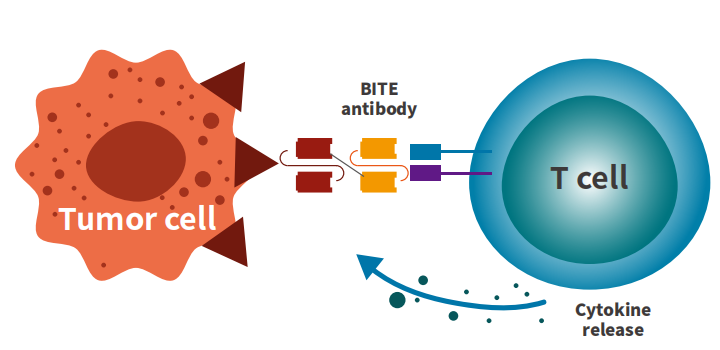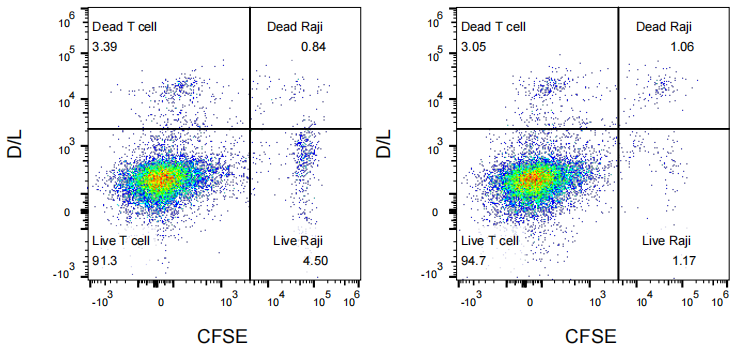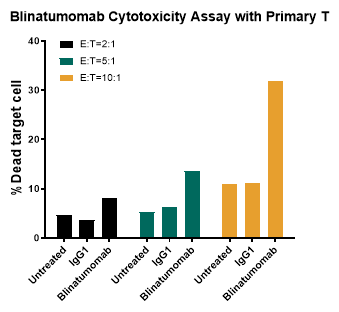Bispecific antibodies (BsAb) feature two distinct antigen-binding sites, allowing them to simultaneously bind to two target antigens. In addition to their traditional antibody targeting function, they serve a unique role, such as one site binding to specific antigens on target cells and the other site binding to effector cells (like lymphocytes or phagocytes). This leverages the advantages of traditional antibodies in tumor diagnosis and treatment. When compared to traditional antibodies, the newly developed bispecific T cell engagers (BiTEs) show strong competitiveness in terms of tissue permeability, tumor cell killing efficiency, off-target rates, and clinical applications, making them significantly valuable in clinical practice. In vitro evaluation of the killing effect of T/NK cells on tumor cells mediated by bispecific antibodies can help assess the activity of bispecific antibodies in pre-clinical research stages.

Case: Blinatumomab induced cytotoxicity on Raji when co-culturing with the T cells derived from primary PBMC.


Fig1. Blinatumomab induced cytotoxicity on target cells with T cells
GemPharmatech Advantages
Extensive library of target cells (300+ cancer cell lines and humanized cell lines) and certified BSL-2 level laboratories.
Free provision of comparator antibody therapy for common viral infections.
Cytotoxicity assay with diverse effector cells, including T cells and NK cells.
Vast project experience.
Compliance with regulatory requirements for new drug application submissions.
Stringent laboratory data storage standards to ensure experiment traceability.

